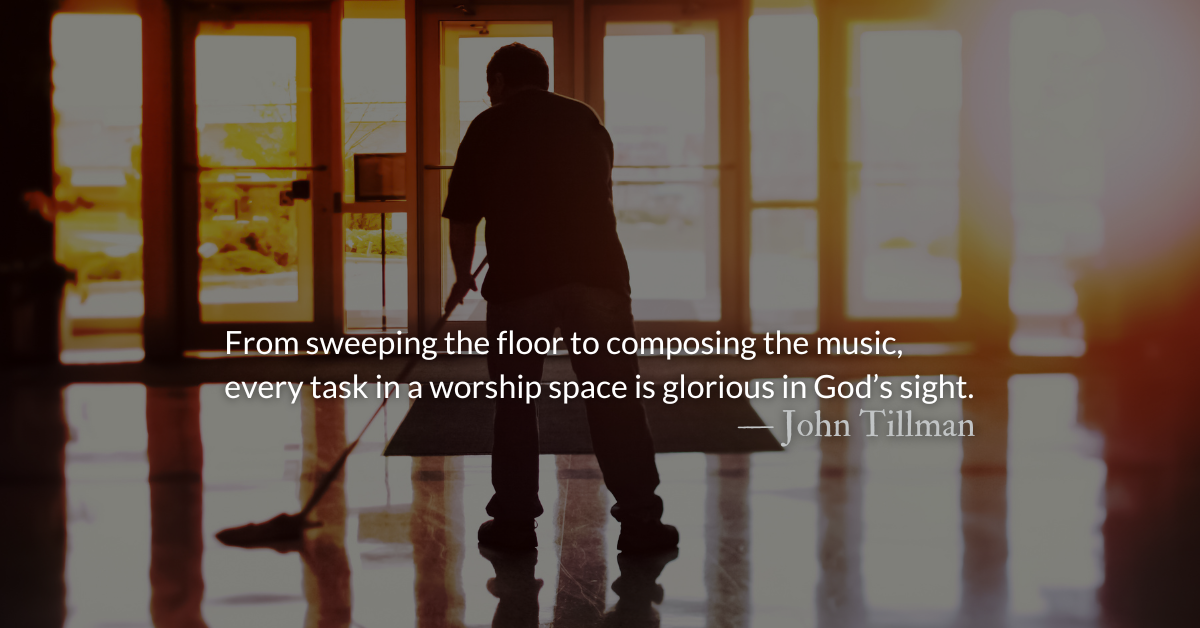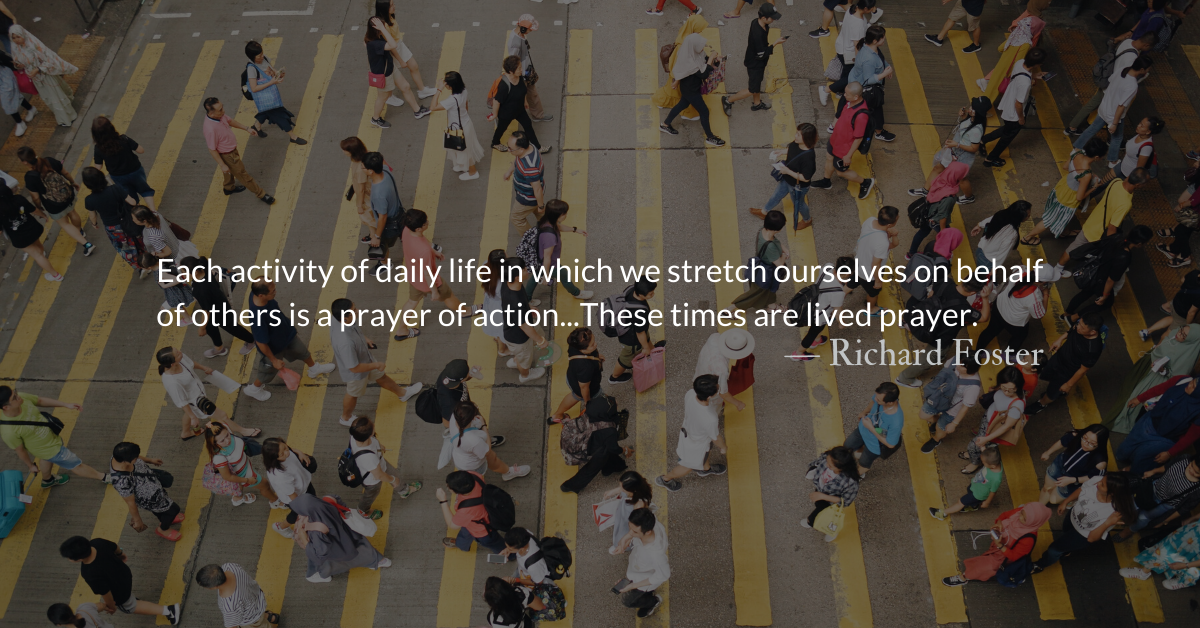Scripture Focus: 1 Chronicles 9.26-33
26 But the four principal gatekeepers, who were Levites, were entrusted with the responsibility for the rooms and treasuries in the house of God. 27 They would spend the night stationed around the house of God, because they had to guard it; and they had charge of the key for opening it each morning.
28 Some of them were in charge of the articles used in the temple service; they counted them when they were brought in and when they were taken out. 29 Others were assigned to take care of the furnishings and all the other articles of the sanctuary, as well as the special flour and wine, and the olive oil, incense and spices. 30 But some of the priests took care of mixing the spices. 31 A Levite named Mattithiah, the firstborn son of Shallum the Korahite, was entrusted with the responsibility for baking the offering bread. 32 Some of the Kohathites, their fellow Levites, were in charge of preparing for every Sabbath the bread set out on the table.
33 Those who were musicians, heads of Levite families, stayed in the rooms of the temple and were exempt from other duties because they were responsible for the work day and night.
Reflection: Returning to Holy Space
By John Tillman
Chronicles includes genealogies of those who went into exile and those who came out. The chronicler lists those who returned with Ezra and Nehemiah and makes special note of those set apart for tasks related to temple worship.
The chronicler looked back to earlier times, when David and Samuel designated and redesigned the tasks of the Levites who took care of the Tabernacle. The Tabernacle and the temples that followed were complex systems. There were gatekeepers, inventory keepers, bakers, perfumers, and architects tending to the practical needs of the space. There were also artists, musicians, teachers of the law, prophets, poets, and students, tending to the intellectual and spiritual needs of the space.
We don’t sacrifice animals in our modern worship spaces but have other complex logistics and tasks. We rely on professional and volunteer leaders to meet practical, intellectual, and spiritual needs.
The Bible presents an ideal that the place we worship God should be holy and beautiful. The Bible is also honest about the shortcomings of sacred spaces and leaders. Samuel became Israel’s spiritual leader due to corruption in Eli’s family, including financial and sexual abuse.
When Jesus entered the Temple as a babe, it was a place of music and prophecy where Anna and Simeon sang over him. When Jesus entered as a child, it was a place of debate and questions, where he amazed the elders. When Jesus entered as a man, he drove out the grift that had overtaken a space designated for spiritual seekers.
As he set free the doves, perhaps Jesus thought of his impoverished parents offering doves after his birth because they could not afford a lamb. Even in this morally and spiritually compromised space, Jesus’ ministry continued as the blind and lame came to him there for healing, and he taught there regularly.
It is hard and holy work to make space for worship. From sweeping the floor to composing the music, every task in a worship space is glorious in God’s sight. No worship space is perfect in holiness. Like Jesus, we may have a painful history with earthly Temples, the Church. We may be hurt, lamed, or blinded. Even so, Jesus calls to us.
Jesus continues his ministry in his church, healing the lamed and blinded and teaching the doubtful and questioning. Like the chronicler, we can return and rediscover holy space even after disaster and suffering.
Divine Hours Prayer: The Call to Prayer
Hallelujah! Praise the Name of the Lord, give praise, you servants of the Lord, You who stand in the house of the Lord, in the courts of the house of our God. Praise the Lord, for the Lord is good; sing praises to his Name, for it is lovely. — Psalm 136.1-3
– From The Divine Hours: Prayers for Summertime by Phyllis Tickle.
Today’s Readings
1 Chronicles 9-10 (Listen 7:46)
Psalms 85 (Listen 1:25)
This Weekend’s Readings
1 Chronicles 11-12 (Listen 12:59), Psalms 86-87 (Listen 2:17)
1 Chronicles 13-14 (Listen 4:13), Psalms 88 (Listen 1:58)
Read more about Maintaining Sacred Space
Making sacred space where humans and God can interact is a priestly duty. It is also one each believer bears today.
Read more about Where is the Love?
Where is the love in this scene? Who does Jesus love? Who or what is he fighting for?








